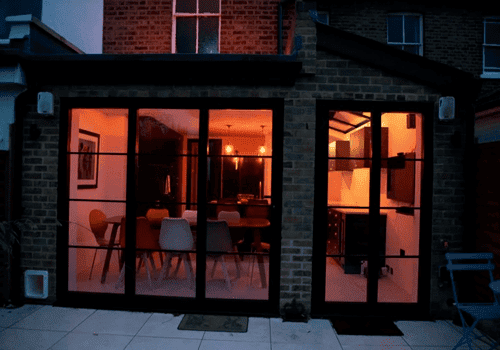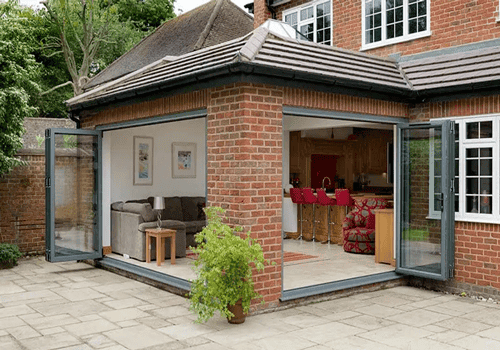If your home is swiftly becoming too small for you – maybe your family is growing, you’re craving a new room to entertain guests, or you’ve gotten into a new hobby that has taken over your life and your living space – you may be considering a home extension. But where to start? Going in all guns blazing without the proper planning could mean making rash decisions you ultimately come to regret. All of a sudden, you’ve sunk a lot of money into a big investment that you’re not even all that happy with. Stop and think: you need a plan.
What Defines a Home Extension and is it Right for You?
What Defines a Home Extension and is it Right for You?
When designing a house extension, there are no limits to what you can produce. Extensions can take many forms, such as a new room, a garden office, a conservatory, or even a porch. Anything that adds more space to your property is generally considered a home extension, and so you should be aware of what extension you need. By the time you’ve decided your home needs an extension, you’ll most probably know what purpose it will serve; with all the money that goes into planning, developing, and building an extension, meticulous budgeting at every stage will be the cornerstone of the project.

Mistakes to Avoid
Under-budgeting
One of the biggest mistakes you can make when planning a home extension is under-budgeting. Ensure you account for all potential expenses, including materials, labour, and any unforeseen costs that may arise. If you are working with a contractor like Calico, we can advise on how to spread your budget to meet your requirements and keep the cost down. It’s always a good idea to have a contingency fund to cover unexpected expenses.
Not Researching Planning Permissions
Before you begin construction, it will be essential to research and obtain the necessary planning permissions. There may be different rules as regards a front house extension to a back house extension. Failing to do so can result in legal issues, fines, and even the demolition of your newly built extension. Check with your local council to ensure your plans comply with regulations, as you won’t want to fall foul of wasting time, money, and resources as a result.
Disregarding the Rest of Your Home
When planning an extension, take care to consider how it will impact the rest of your home. The new space should blend seamlessly with your existing property, both in terms of aesthetics and functionality. Think about how the extension will affect natural light, traffic flow, and the overall feel of your home.

Additional Considerations for Successful Home Extension
Additional Considerations for Successful Home Extension
Hire the Right Professionals
Let’s face it: there’s nothing worse than hiring people to work on your home, only for them to go AWOL before the job is finished, or do the work incorrectly, causing hazards and leaving poor craftsmanship in their wake. Hiring a reputable architect and builder like Calico Cabinets can make a significant difference in the success of your home extension project. Our professionals have experience in a diverse portfolio of projects and with great references. Good communication with your team is crucial to ensure your vision is understood and executed correctly.
Future-proofing
Consider your long-term needs when planning an extension. Are you anticipating your family growing in the near future, or perhaps you need more room for hobbies or work. Designing a flexible space that can adapt to future changes (if you decide this would be beneficial) can save you from needing another extension later down the line.
Energy Efficiency
An energy-efficient extension can save you money on utility bills and afford an extra layer of comfort. You may consider incorporating insulation, double glazing, as well as energy-efficient heating and cooling systems to boost your design. Not only will these features reduce your environmental impact, but they will also add value to your property.
Neighbour Considerations
Maintaining relationships with your neighbours makes the difference between living harmoniously and living hell. During the planning and construction phases, inform them of your plans and address any concerns they may have. Being considerate can help you avoid disputes and ensure a smoother building process.
Detailed Planning and Timeline
Creating a detailed plan and timeline for your project can help you stay on track and within budget. Outline each phase of the project, set realistic deadlines, and regularly review progress. This proactive approach can help you anticipate and address any issues that arise promptly.
Choosing Quality Materials
Investing in high-quality materials can make a big difference in the durability and appearance of your extension. While it may be tempting to cut costs with cheaper options, quality materials can reduce maintenance needs and enhance the overall value of your home.
By taking these tips into account, you can ensure that your home extension project runs smoothly and meets your needs both now and in the future. Careful planning, professional advice, and a clear vision will help you create a space that enhances your home and improves your quality of life.
